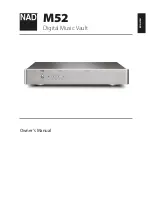
11
Section 3
Operation
This section describes how to set up and make measurements with your tester. We
recommend that you read the entire section carefully so that you can use all of the features of
your tester.
Setting up your Tester
Your tester is shipped in a special protective container that should prevent damage to the
instrument during shipping. Check the shipping order against the contents of the container and
report any damage or short shipment to Compliance West USA. The container should include
the following:
-
The HT-2800P Dielectric Withstand Tester
-
An 18 AWG Test Lead (Alligator Clip/Banana Plug ends, black)
-
An 18 AWG Line Power Cord to provide power to the HT-2800P
-
This Instruction Manual
If reshipment of the instrument is necessary, please use the original shipping container. If
the original shipping container is not available, be sure that adequate protection is provided to
prevent damage during shipment. We recommend that the instrument be surrounded by at least
three inches of shock-absorbing material on all sides of the container.
Remove the tester from its container and place it on a test bench.
AC Line Voltage Requirements
AC line voltage requirements for your Tester are noted on the rear panel of the
instrument. Do not connect the instrument to a different voltage source.
Fuse Replacement
There is a user-replaceable fuse (F1) located on the rear panel of the instrument. It is
located behind a door in the Power Inlet-Power Switch-Fuse Holder device. The fuse rating is
noted on the rear panel. Do not attempt to replace it with a fuse of any other rating.
Use the following procedure to replace the fuse F1:
1. Turn the power switch to the O or Off position.
2. Unplug the instrument from the source of supply.
3. Remove the power inlet cord from the instrument.
4. Using a small screwdriver, pry open the fuse holder door.
5. Replace the fuse with a new one of the correct rating.
6. Replace the fuse holder door and power inlet cord.
Front and Rear Panel Features
Before using your tester, take a few minutes to become familiar with the use of its
controls, indicators, and connectors. The front panel features of the HT-2800P are shown in
Figure 2 and described in Table 2. The rear panel features of the HT-2800P are shown in Figure
3 and described in Table 3.
Summary of Contents for HT-2800P
Page 2: ......
Page 4: ...2 ...
Page 14: ...11 Figure 2 Controls Indicators Connectors Model HT 2800P Front Panel ...
Page 16: ...13 Figure 3 Controls Indicators Connectors Model HT 2800P Rear Panel ...
Page 18: ...15 ...
Page 26: ...23 ...














































